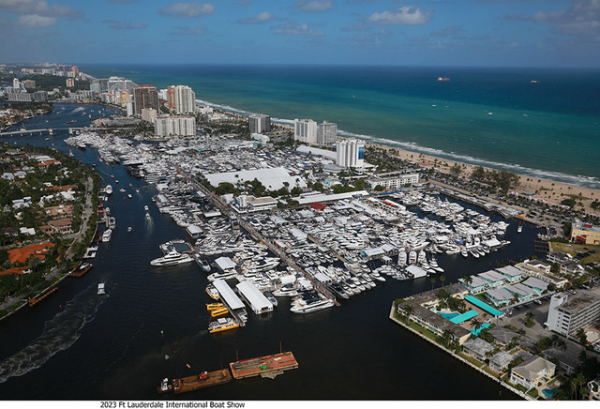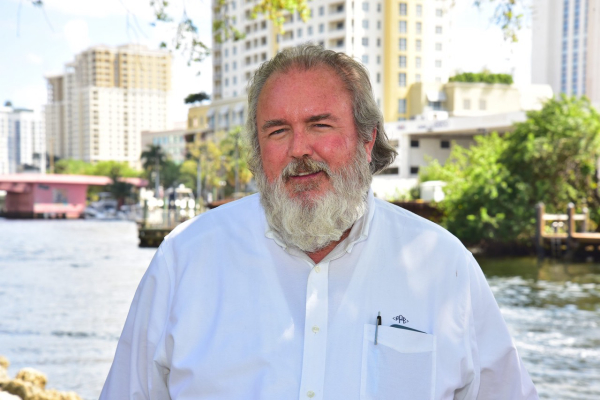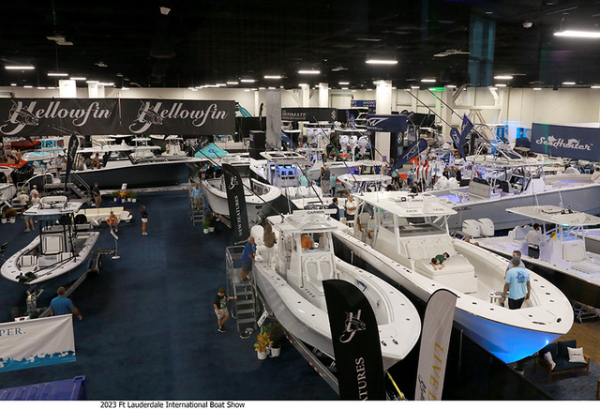It is no secret that the US outdoor sports industry is enormous and has a significant impact on our economy. The National Shooting Sports Foundation (NSSF) reports that companies that produce or distribute guns, ammunition or shooting supplies contribute 384 thousand jobs, $26 billion in wages and an overall economic impact of $90 billion annually.
The same is true for the recreational fishing industry. The American Sportfishing Association reports that America’s 52 million anglers, both saltwater and freshwater, contribute $148 billion to the US economy and generate almost a million jobs. My home state of Florida is the number one beneficiary of such activity with almost $14 Billion in economic impact.
Fishing often requires a boat. However, not all boaters are anglers. Some simply enjoy spending a day out on the water with family and friends, perhaps while water skiing, snorkeling or just relaxing with the wind and waves.

With the Fort Lauderdale International Boat Show (FLIBS) starting on October 30th and running through November 3rd , I decided to explore the impact the boating industry has on my own backyard of South Florida. To do that, I met with Phil Purcell, CEO and President of the Marine industries Association of South Florida (MIASF), the not-for-profit trade group that owns the Fort Lauderdale International Boat Show.
To say that I was impressed with what I learned would be an understatement. Quite frankly, I was blown away. I had no idea the show was so big, the industry was that large, or that the trade group was so engaged in numerous innovative ventures, many of them offsprings of the annual gathering.

For starters, the Fort Lauderdale International Boat Show (FLIBS) is the largest in-water boat show in the world with over 1300 boats on display-- spread out over seven different sites in Fort Lauderdale. Over 100,000 people will attend the show, almost half of them from outside Florida including a sizable number of international visitors. During the 5-day exhibit, approximately $900 million in direct sales will take place, as well as an overall economic impact of $1.8 billion that includes flights, lodging, restaurants, ground and water transportation and other expenditures. That includes everything from “Superyachts to sunglasses”. The show generates three times the economic impact of hosting a Super Bowl.

Superyachts are a small but eye-catching component of FLIBS. Depending on who you ask, a superyacht is considered a yacht over 24 meters (80 feet) in length--- or a yacht over 40 meters (131 feet). This year’s show in Fort Lauderdale will attract over 20 yachts greater than 50 meters in length and 159 yachts above 24 meters. That, dear reader, is a boatload of big boats.
Big boats attract individuals (and companies) with big wallets. To tap into this, FLIBS is preceded by Ocean Exchange, a yearly contest for innovative start-up companies that support healthy oceans and offer sustainable solutions for the marine industry. Just before the show opens, the winners are selected and three awards, each accompanied by $100,000 in prize money, are provided to the entrepreneurs to bring their ideas to the market. In addition, two $10,000 Collegiate Awards are awarded to university students developing early-stage technologies that are deemed innovative, impactful and are capable of being executed successfully.
Ocean Exchange relocated to South Florida in 2019 with the support of the Marine Research Hub, a tax-exempt organization funded by The Greater Fort Lauderdale Alliance, an economic development group, and the Marine Industry Association of South Florida. The hub has brought together local universities, research firms, marine industries, and philanthropic foundations. Today, it is recognized as a world-class marine research corridor and collaborator. It is ably led by Katherine O’Fallon, a marine biologist and former middle school educator who is now the group’s executive director.

Finally, CEO Phil Purcell’s organization has developed other innovative programs including the annual Plywood Regatta, a boat-building contest for middle and high school students, Salty Jobs, an award winning video series that highlights marine industry jobs, and also the first-ever Florida Yacht Service Technician Apprenticeship Program leading to lucrative careers in the industry.
The Marine Industry Association of South Florida and the Fort Lauderdale International Boat Show are showing the world that remarkable things can happen when companies, academic institutions, economic development organizations and bright, motivated individuals work together to generate profits… and do good in the process.
Historically, Navy ship captains used the “Bravo” and “Zulu” nautical signal flags to signify a “job well done” to another ship. There is no doubt that the Marine Industries Association of South Florida deserves a hearty “Bravo Zulu” for their remarkable work for the industry, the region and for the future of our coastal communities, oceans, and fisheries.
— Raul Mas
Raul is the editor of The Outdoor Wire Español, the Spanish-language edition of our digital news network. He has never owned a boat in his life. He did, however, serve as the Commissioning Chairman for USS Gridley DDG 101, a US Navy guided missile destroyer. Gridley measures 155 meters (509 feet) in length. It is a very big boat.